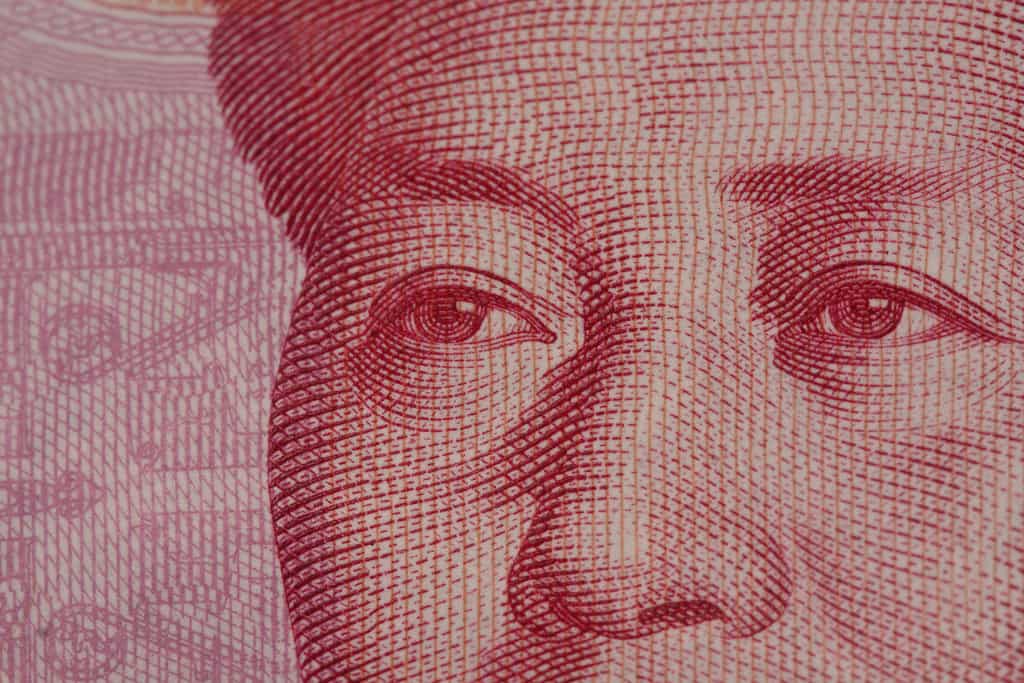Shanghai’s municipal authorities have called for encouraging the use of Chinese yuan when it comes to the settlement of trade in goods, as part of a fresh round of measures to shore up levels of foreign trade and investment in the city.
Shanghai recently released the “Measures to Increase the Attraction and Utilization of Foreign Investment in Shanghai” (上海市加大吸引和利用外资若干措施) and “Measures to Promote the Steady Scale and Quality Improvement of Foreign Trade in Shanghai.” (上海市促进外贸稳规模提质量的若干政策措施).
The “Measures to Promote the Steady Scale and Quality Improvement of Foreign Trade in Shanghai” call for “encouraging the use of the renminbi in cross-border trade in goods” within a raft of measures to foster the growth of Chinese enterprises in foreign markets.
“Shanghai is committed to implementing the arrangements of the Central Committee of the Communist Party of China and the State Council, and has always regarded the high-quality development of foreign trade and foreign investment as a top priority,” said Shanghai deputy-mayor Hua Yuan (华源) at a press conference held on 4 April.
“In recent years, Shanghai has successively introduced multiple policies to stabilize foreign trade and investment, which have achieved positive results.
“Its role as the trade hub has been further enhanced, its status as a preferred destination for foreign investment has been consolidated.”
According to official data, the scale of goods imports and exports as well as actually utilised foreign investment in Shanghai both reached historic highs in 2022.
Total foreign trade imports and exports reached 4.19 trillion yuan, for a year-on-year (YoY) increase of 3.2%, while actually utilised foreign investment reached US$23.956 billion, marking the third consecutive year it’s remained above the US$20 billion threshold for three consecutive years.
Key contents of the “Measures to Promote the Steady Scale and Quality Improvement of Foreign Trade in Shanghai” include:
- Promoting stable growth in the scope foreign trade, focusing on key enterprises and products, and increasing support for customs clearance, finance, and tax refunds. Key proposals include supporting the expansion of diversified international markets for electromechanical and high-tech product companies. Medical equipment products entering special customs supervision areas or bond logistics centers are exempt from need to attach Chinese-language labels. Shanghai will encourage the expansion of imports of key energy and mineral resources and important agricultural product. The Shanghai branch of the Export-Import Bank of China also will establish a special credit line of 10 billion yuan for small and micro foreign trade enterprises.
- Promoting innovative development in foreign trade, increasing innovation support, promoting new forms and models of development, and unleashing new dynamics for foreign trade development. Key proposals include accelerating the expansion of the third phase of the Yangshan Special Comprehensive Bonded Zone, and exploring the expansion of the Yangshan Special Comprehensive Bonded Zone to grant access to more ports. Supporting enterprises in conducting cross-border e-commerce retail imports of pharmaceuticals and medical devices. Accelerating the pilot implementation of new product import regulation for reprocessed products. Supporting bank institutions in cross-currency settlement for offshore trade. Actively and prudently developing bonded oil refueling business for international navigation ships in this city’s anchorage, and so on.
- Supporting the development of diversified markets, taking the deep implementation of the RCEP as an opportunity to support enterprises in expanding international markets. Key proposals include holding offline exhibitions for the East China Import and Export Commodity Fair and organizing more companies to participate in the Canton Fair offline exhibitions. Increasing support for companies participating in overseas key exhibitions. Increasing efforts to cultivate approved export merchants, guiding enterprises to make good use of the facilitation measures for self-declaration of producing. Building overseas warehouse comprehensive service platforms and encouraging the priority use of renminbi settlement for cross-border trade in goods.
- Optimising the cross-border trade business environment, focusing on border and post-border measures, and increasing support for public services in foreign trade. Key proposals include supporting compliant enterprises to apply for general licenses for specific dual-use items. Expanding the business of off-site cargo stations in the Yangtze River Delta region. Supporting enterprises in responding to overseas intellectual property infringement investigations. Expanding the business scope of the Shanghai center of the World Intellectual Property Organization’s arbitration and mediation and supporting overseas arbitration institutions in setting up branch institutions in Shanghai.
“Shanghai is committed to implementing the arrangements of the Central Committee of the Communist Party of China and the State Council, and has always regarded the high-quality development of foreign trade and foreign investment as a top priority,” said Shanghai deputy-mayor Hua Yuan at a press conference held on 4 April.




